So you want to start an organic garden but are not sure exactly what organic gardening is? Here we define exactly what organic gardening is {and why it’s so important}.
This post may contain affiliate links at no additional cost to you. By making your purchases through the links on this website, IMSL may make a small percentage at no direct cost to you. IMSL only promotes products we use & truly believe in. Please refer to my Privacy & Disclosures for further information. IMSL thanks you for your support!
With life’s circumstances changing rapidly, more people are looking to becoming a bit more self reliant. And that includes food self-reliance.
After all, look at the panic with the whole toilet paper shortage. Can you imagine what it would be like if it were our food sources? And sadly, that is the case for many, but that’s a topic for another day.
I look at this awakening as a good thing in many ways. And that includes the huge increase of interest in growing our own food.
If you are familiar with IMSL, you know that I am a huge proponent of organics. Organic everything. And more importantly, sustainable organics. From our food to our personal care products (think toothpaste, deodorant, & moisturizers), I am always looking for ways to reduce our overall hidden chemical exposures.
It is my belief that we are all connected. The choices I make in my every day living have an impact & consequences. An impact not only to myself, but to my family, and consequences to the delicate eco-system that we are blessed to be surrounded with.
When it comes to my gardening approach, it’s simple. I have a choice. The plants I choose to grow can either work synergistically with the soil, the water, the insects & wildlife, and ultimately us, or they can cause great harm to all those said connections.
With that being said, what exactly “is organic gardening”?
WHAT DOES ORGANIC GARDENING MEAN
Organic gardening by definition according to Merriam Webster Dictionary is as follows.
Definition of organic
1a(1): of, relating to, yielding, or involving the use of food produced with the use of feed or fertilizer of plant or animal origin without employment of chemically formulated fertilizers, growth stimulants, antibiotics, or pesticides
WMD
Maria Rodale, is quoted in her book Rodale’s Illustrated Encyclopedia of Organic Gardening in regard to gardening organically as “an environmentally friendly, people-friendly style of gardening”. Maria goes on to say “Organic gardening gives you the chance to create the garden you want, safe in the knowledge that you are also doing your part to protect the wider environment in which we all live.”
Basically, organically grown food here on the hill is grown without man-made anything, as opposed to a “conventional” gardening approach which utilizes synthetic, man-made fertilizers & pesticides.
We like to let Mother Nature roll here on the hill, and create the most nutritious, healthy food we possibly can. Organically.
But I get ahead of myself.
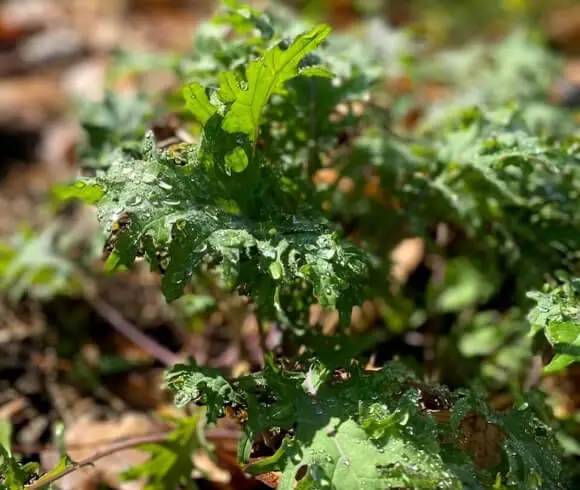
Making the decision to move from our beloved seacoast home to a rural location was based on one simple fact. We wanted to grow our own food. Organically. Period.
We’re talking almost 20 years ago. At that time, I was referred to as a “treehugger” and a crunchy “hippy”. And at the time, these were not fondly said thank you very much. Now I embrace those labels & cherish them. They are a badge of honor for me 😉
Today, more and more (thank goodness) are turning toward “organics” & without the labels & name calling thank goodness. And for good reason.
ORGANIC GARDENING BEGINNINGS
Although regulations for commercially growing organically are stringent (and personally I believe this should be flipped and conventional farming should jump through the hoops, but I digress), fortunate for us as home growers, we have the choice. The choice of whether to invest in ourselves and our environment in a sustainable manner or not.
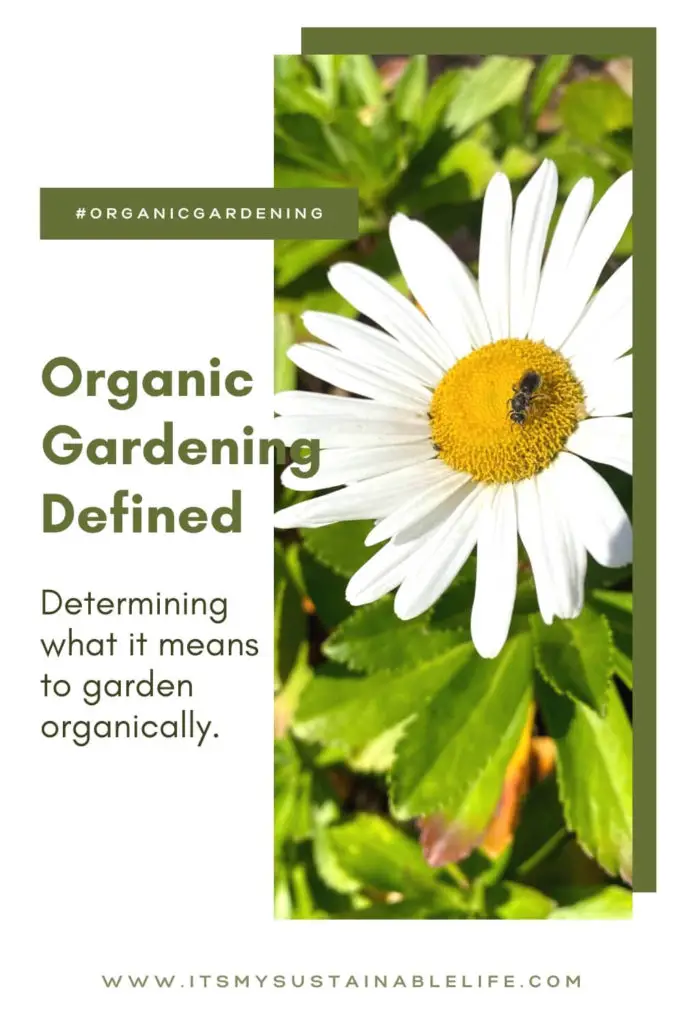
As far back as the 1940’s, J.I. Rodale became one of the leading advocates for “organics”. He firmly stood by the notion that conventional “chemical” fertilizer and pesticide useage should be banned from being utilized as he believed they were destroying the environment.
His belief that by utilizing only natural materials found in nature, by applying only manure & compost to the garden, and by crop rotation in the garden, has set the stage for the organic gardening fundamentals & practices that are once again gaining in popularity today.
For me, the evidence is clear. The benefits of growing organically far outweight any cons.
BENEFITS OF ORGANIC GARDENING
It always surprises the disparity between the benefits of gardening with an organic approach and the cons of doing so. Let’s just say, the scales are certainly tipped in favor of organics. By far.
HEATLH BENEFITS OF ORGANIC GARDENING
The biggest benefit of gardening organically? Our health. Period. Here’s some food for thought.
- FEWER PESTICIDES & HEAVY METAL EXPOSURES – Organic produce is grown largely without the use of synthetic pesticides and artificial fertilizers. The operative word(s) here being synthetic & artificial. It should be noted that many organics are grown using naturally occuring fertilizers, fungicides, and insecticides that pose no environmental issues when used in moderation. For a complete list of allowed products here in the USA, look to the USDA
- HIGHER NUTRITION – For years its been disuputed that organic food contains higher nutrients. Today, studies are confirming just that. Better nutrition
“multiple studies show that organic varieties do provide significantly greater levels of vitamin C, iron, magnesium, and phosphorus than non-organic varieties of the same foods.”
NCBI
- HIGHER ANTIOXIDANTS – A six year study “to assess the effect of conventional, organic, and mixed cultivation practices on bioactive compounds (flavonoids, anthocyanins) and antioxidant capacity” show’s organics contain a larger amount of antioxidants
- REDUCED HEALTH RISKS FOR ALL – You may be saying to yourself, “what”? How can eating organic food reduce overall health risks for everyone? Think not only of our own health, but that of the growers. The farmers themselves who are working the fields, and “we” the consumers. Here are some considerations to think about from conventional farming when it comes to health risks.
- TOXIC CHEMICAL EXPOSURES – Common chemicals used in conventional farming such as atrazine and glyphosate (round-up anyone?) are known endocrine disruptors and have possible cancer repercussions in humans
- WATER POLLUTION – Increased water pollution, excessive nitrates, from excessive synthetic fertilizers and animal waste being washed into our water systems, threatens our health and is linked to Blue Baby Syndrome
- AIR POLLUTION – Nitrogen-rich fertilzer fumes are a major source of air-pollution today
- REDUCED NUTRIENTS – Conventional farming today has led to greatly reduced nutrient dense foods
- INCREASED HEALTH ISSUES – Conventional farming practices here in the US are shown to have “major public health issues influenced by American farm policy. These are (1) rising obesity; (2) food safety; and (3) environmental health impacts, especially exposure to toxics and pesticides.”
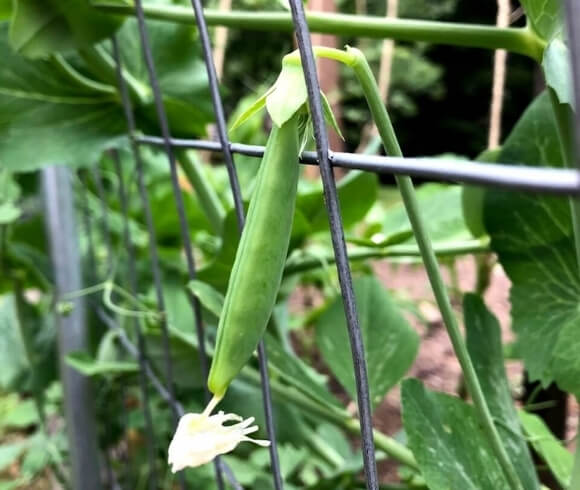
ENVIRONMENTAL BENEFITS OF ORGANIC GARDENING
Organic gardening is about simulating nature’s natural cycles. It’s about creating a natural balance in our gardens by cultivating an ecosystem that promotes healthy plant growth, and supports the soils health. All this will in turn invite beneficial insects (and, yes, others as well) and most importantly, promote the soils microbes.
As Therese Ciesinski, the editor of Garden Smart newsletter states,
“Organic gardening is more than simply avoiding synthetic pesticides and fertilizers. It is about observing nature’s processes, and emulating them in your garden as best you can. And the most important way to do that is to understand the makeup of your soil and to give it what it needs. If anything could be called a ‘rule’ in organic gardening, it’s this: feed the soil, not the plant.”
Therese Ciesinski
Like Ms. Ciesinski said, the main rule of organic gardening: “feed the soil, not the plant”.
ORGANIC SOIL
When gardening organically the soil is the star. Not only creating a growing medium for our plants, but maybe more importantly, developing and nurturing that delicate eco-system we mentioned.
An ecosystem that just continues to get stronger over time. With a little tending.
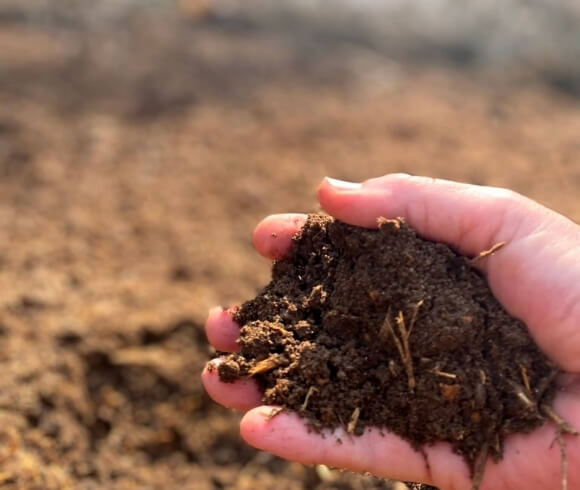
Like with any form of gardening, tending the soil is key to a successful one. Feeding the soil is what I like to call it. After all, it’s a living entity.
Before feeding your soil I highly recommend you get your soil tested as I go over in depth in how to start a vegetable garden from scratch. Go to your local extension office and find out exactly what you need to apply to your organic gardening space.
Feeding it with organic compost. Think grass clippings that have not been treated, leaves, yard debris, and kitchen scraps that have been allowed to break down into a wonderful “black gold” as it’s fondly called. We also capture chicken manure here on the hill and compost it. Planting “green crops” or cover crops is another way we like to feed our soil. Consider using the power of the sea to our advantage by utilizing seaweed for improving your soil should you live near the shore.
ORGANIC FERTILIZERS
Organic gardening uses no synthetic or man-made fertilizers. Period. By organically gardening you not only are keeping these toxic synthetics out of the garden, reducing your exposure(s) when applying them, but out of your home and body as well when brought into the home and consumed.
Utilizing only organic fertilizers such as seaweed/liquid kelp (how to make it coming soon) and our compost, our soil is greatly improved and fed. Depending on your soil condition, you may need to add additional organic matter to create that “balance”.
- SANDY SOIL – You may need to consider adding composted manure(s), and/or other sources such as rock phosphate, seaweed, and woodash to assist in improving the nutrients your soil can provide the plants
- ACIDIC SOIL – Consider applying limestone available at your local nursery if your soils pH levels need improving
Should you need to purchase organic fertilizers or plant foods, be sure to look for the OMRI (Organic Materials Review Institute) approved label. OMRI is an independent review organization that does just that. Reviews & creates a list of products approved for use in the organic garden.
ATTRACT POLLINATORS TO THE ORGANIC GARDEN
As beekeepers ourselves, the importance of creating a biodiverse, inviting garden that feeds not only the earth and ourselves but also our bee’s is of great importance.
After all pollinators of all kinds will be attracted to a garden not sprayed or treated with synthetic materials, but will thrive and survive the visit.
They will not only be fed themselves, but will ultimately provide us with greater harvests as a result of their hard work.
IMPROVED AIR POLLUTION WITH ORGANIC GARDENING
Approximately 10-12% of greenhouse gases have been found to stem from conventional farming practices. That translates into a whopping six giga- tonnes of CO2. Not such good news for global warming. And no, I am not going to get into discussions concerning this topic. Believe what you wish, but the science is there.
Through utilizing organic gardening approaches this research states…
“As a consequence an organic farming system is only substitute to produce healthy products without
Farhad-Nejadkoorki
any side effects locally (air pollution) and globally (climate change).”
IMPROVED WATER POLLUTION WITH ORGANIC GARDENING
Eutrophication, or the gradual increase in the concentration of phosphorus, nitrogen, and other inputs, of our waterways is an issue. Period. After all, without clean, drinkable water where will we be?
When using organic methods of farming this type of runoff is greatly diminished if not removing these risks completely. The USDA has stated it best.
“Well-managed organic systems rely mainly on slow-release forms of nutrients which reduce the risk of nutrient runoff and leaching. Enhanced soil structure, water infiltration, and nutrient retention also reduce the risk of groundwater pollution.”
USDA
TIPS FOR ORGANIC GARDENING
I will say that growing organically is not an easy task. It’s tempting when crops are failing or pests are abound to reach for something to take care of it in an easy spray. However, the risks in my humble opinion are just too great.
It can be extra work and time that need to be devoted to keeping up with a garden organically. However, it’s this time spent that is so rewarding. There may be nothing better than stepping into a garden at first light to see “what’s growing”, what needs to be tended, and just puttering with that first cup. Heaven.
I’ve found a few tips to share over the years to help you along the way.
I. Lay the proper foundation. A successful garden is all in the planning. Refer to my Starting A Vegetable Garden From Scratch to build your organic foundation. The information therein is applicable for any type of plant you will be growing.
I’ve created an amazing planner to help you do just that and more. Planning, tracking, and managing every aspect of your garden. Grab your 24 printable pages which can be used year-to-year by clicking the image below.
II. Choose the proper plantings. Organic gardeners know that certain plants grow well in certain areas and others not so much. Don’t try to force plants to grow in an environment not well suited for it. You will only be discouraged and frustrated.
This translates into choosing only varieties that are adapted to your region. I even go so far as to use as many seeds as possible that are from my region as well.
By choosing appropriate plantings, your plants will not be stressed and taxed with trying to just survive. This means they will be stronger, healthier, and better equipped to deal with any insect onslaughts.
III. Overplant. Plan on those attacts by disease and insect infestations. Understand that these “pests” are a natural part of the ecosystem that we are trying to promote. By overplanting you will be feeding yourselves and the biodiversity of the garden as well.
IV. Create diversity. Don’t plant just one type of plant in one large swath. Intersperse your plantings to make it a bit more difficult for the bugs and pests to feast. Consider companion planting to do just that. Learn what grows and feeds one another to benefit all.
For instance, I grow my calendula anywhere it self-sows as it attracts beneficial pollinators and insects, repels unwanted pests, is beneficial with many home remedies, and is edible to boot!
V. Tend to issues fast. By tending to any issues, pest control or disease, in a rapid and timely manner, you will hopefully be a step ahead of any major issues.
Remember that wandering I do at first light? I utilize that time to check the plantings. I remove (handpick) unwanted pests (my chickens love me during these hours) and look for any warning signs.
It should be noted that any issue that is large enough to decimate a garden is a pretty good indication that the ecosystem is not in balance. There will be pests to deal with. However, by creating that diverse balance, we invite all beneficial insects and critters, including bats, birds, and spiders that will aid in keeping threats from pests to a minimum.
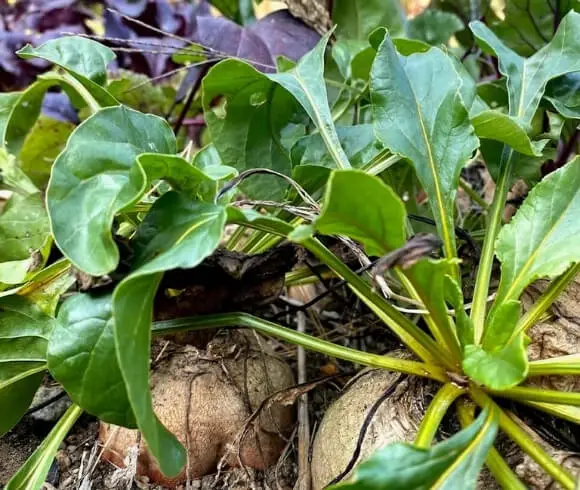
When handpicking just doesn’t cut it, there are other simple methods we can begin to fight back with. For instance we can cover with row covers, or use sticky traps to keep flying pests at bay, or plant stem collars to keep ground pests off.
Many pests such as aphids can easily be removed from our plants with a steady stream of water. If the need to spray with an “insecticide”, utilizing simple, non-chemical sprays such as vinegar, castille soap, and hydrogen peroxide can be used and are a better choice than that of chemical sprays.
VI. Practice good garden hygene. By disposing of your garden “waste” properly will set you up for success. So don’t throw those infected or diseased plants into the compost pile. Remove them, burn them, get them off your property.
Get into the habit of creating a fall garden chore list. It will put you on the right path come spring and the new growing year.
Hopefully we’ve stated our case and defined what organic gardening is. It is a method and style of gardening that I hope you too will make use of.
Looking for more guidance to growing a more organic world? Join me and many other gardeners of all levels of experience over at IMSL’s Organically Rooted Garden Group. It’s here that we can ask questions & share tried and true methods, and continue to learn from one another. Hope to see you there!
Practicing organic garden methods & techniques doesn’t have to be difficult. It just takes attentiveness and an understanding & appreciation for the biodiverse ecosystems we are surrounded with. By honoring & emulating them, Mother Nature will reward us in spades 😉
Do you grow organically?

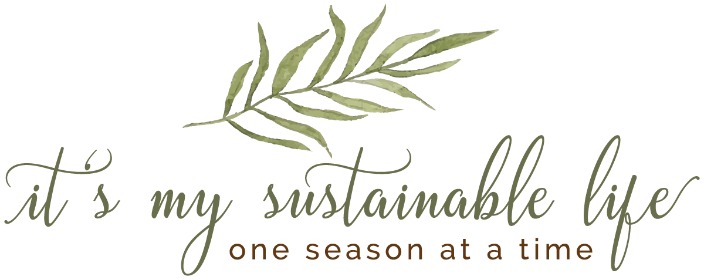
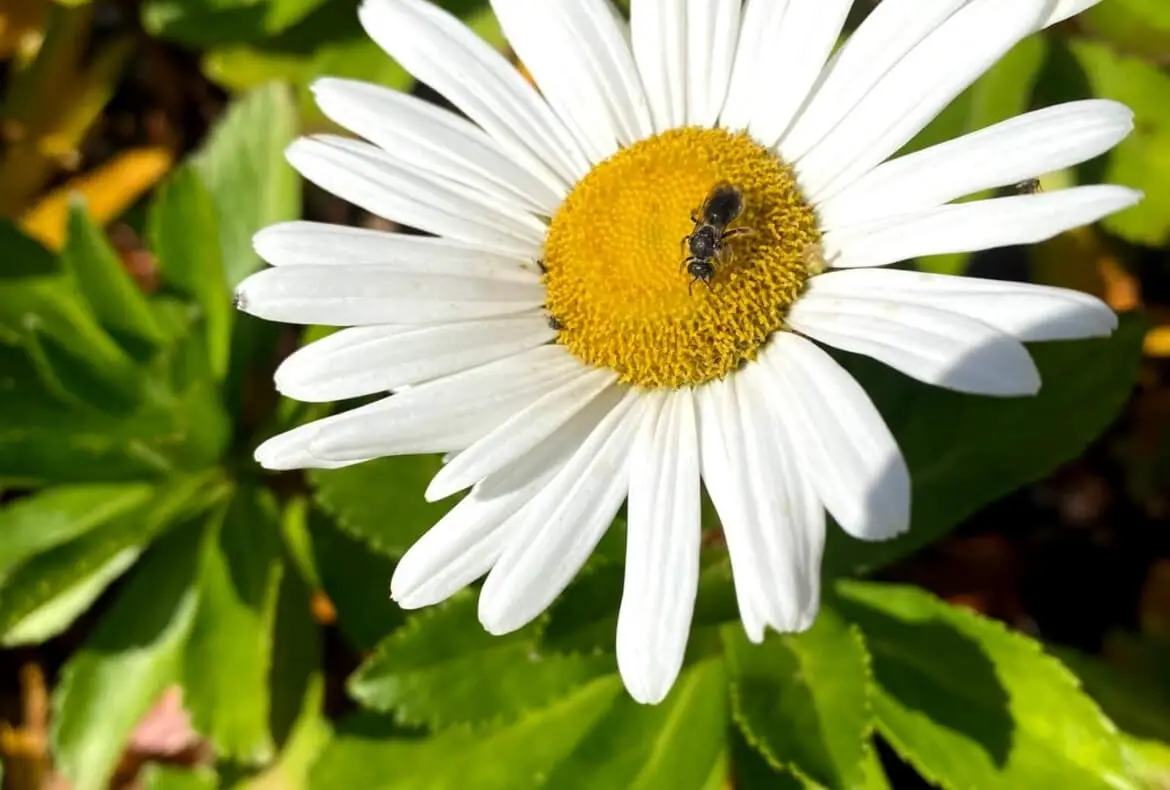
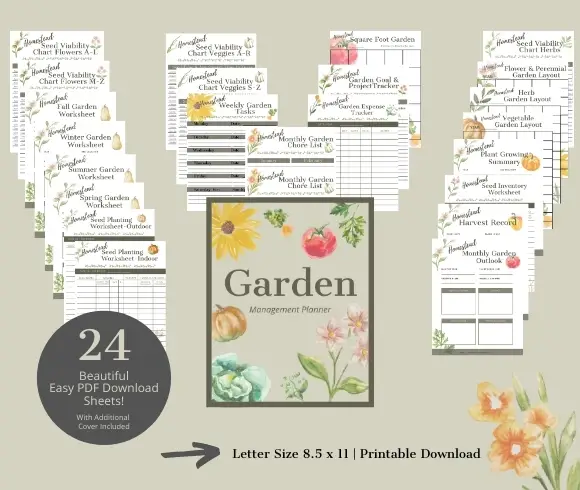

29 comments
I would love to garden, if I had the time and resources.
Such a great post! Organic gardening all the way. My garden is primarily herbs and the veggie section is small, compared to yours, but it’s all organic and will remain that way.
Such great ideas! We’ve not had a garden at home in year
For me, the most poignant part of your post was the quote, “Feed the soil, not the plant.” That really shifts things into a new perspective for me. Thanks!
Thanks for sharing!
I always find your post very informative. This one is no exception. I will buy more organic as gardening is not possible for me.
Thanks for sharing this. So many people don’t realize how much higher the nutrients are in organically grown food. This is great!
I am so excited to start composting this year. I love learning the details about how to be healthier with gardening!
We grow our food organically also — from one tree hugger to another. When one of my girls was a teenager, she wanted to know why we were so weird. Why I asked? She had told her friend to put her banana peel in the compost container and then had to launch into an explanation of what a compost container was. Her friend told her we were weird. LOL
Too funny. At least she was educated in what composting is 🙂
I love that you talk about the environmental benefits of organic gardening. What an educational and inspirational post. I’m glad you have embraced your crunchy treehugger self! 🙂
YOU inspire! Very amazing instruction!
I’m definitely going to do this one day myself. I keep dreaming of living as off the grid as possible. I can also relate to being called a tree hugger & a hippie in a not nice way 😹 some ppl 🤷♀️😹
I had no idea that organically grown food had higher nutrients. That is really cool!
This is so informative. Thank you for this wonderful information. I’ve always wanted to garden but just don’t know how to start.
Thank you, Diane. Hopefully you can peruse my any posts on gardening and they will help guide you to starting!
Oh wow. This is great. I totally agree on pesticides. I’m that crazy person on the block that tries to persuade my neighbors to lay off the pesticides. Bring on the bees (and butterflies, etc.)! This post was super helpful. We for sure want to go organic!
Yes!! Educating is key to making the change 🙂
I’ve always wanted to start an organic garden, but my husband keeps telling me it is too much work. I will eventually get him to give in. I buy organic vegetables all the time, and it would be nice to grow my own.
You are so inspiring. Organic gardening! I’ve started a kitchen window garden. I’ll show you my progress soon.
Can’t wait to see what you have growing! Love to have you join the FB Organically Rooted Garden Group and share!!
This is an amazing blog for us newbies. I have wanted to start a garden of my own. My husband fears that deer will just come and eat it all. However, I am willing to try all these great tips for getting started. Thanks for sharing.
I am really enjoying your blog. I have been small-time gardening for a few years now, some things successfully, others not, and your posts are very informative and easy to follow. Thank you for the wealth of information.
Awesome tips on here! I love organic gardening and firmly believe in it!
You are goals! I can’t wait until I have my own property to start gardening and creating my own homestead.
Soooo much great information here! My grandparents were great believers in having a natural and organic garden (although thats not what they called it).
Right? The narrative certainly needs to change.
Suzan you are incredible! I look forward to learning more from your work. I’m so grateful for other women like you that help women like me move forward in my interests.
Awww, thank you, Arianna, for your thoughtful and kind words! We women need to stick together 🙂